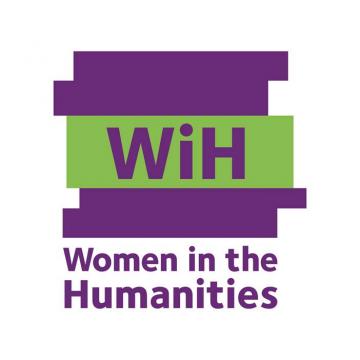CFP: Gendering Internationalism — Gendering Jewish Internationalism

Organised by Dr. Jaclyn Granick and Professor Abigail Green, University of Oxford
This workshop has two aims: first, to bring considerations of gender into international history; second, to reconceptualise international Jewish history as having a gendered dimension. This focus on the experience of a particular group of actors will allow for a more systematic engagement with the conceptual issues involved in gendering internationalism. While many of the papers will engage specifically in gendering Jewish internationalism, we also welcome papers which compare and contrast Jewish and non-Jewish experiences, and which use Jews to think about gendering international history more generally. We would furthermore encourage contributions from those whose work features Jewish actors - both women and men - but who do not necessarily situate them within the framework of Jewish history; as well as from those who work on gendering internationalism from a variety of comparable perspectives, such as diaspora, religion, nation, and ethnicity.
The workshop will explore how hierarchical relations between men and women, social and cultural constructions of masculinity/femininity, organizational structures and asymmetries, division of labor along gender lines, and relationships among activists vary according to certain gender dynamics, and how they interacted with a variety of internationalist commitments, ideologies, and causes. This could include secularism, spirituality, and religious commitments; liberalism and the habits of diasporic belonging; or socialism/Bundism, pacifism, nationalism/Zionism, trafficking, migration/refugees, and communism.
Questions we seek to address:
- How did gender shape the politics and culture of internationalism? What happens when gender is added as a category of analysis for Jewish internationalism?
- How effectively was women’s internationalism integrated into the broader sphere of international organisations and institutions like the League, the UN, the ILO, or the Third International? How does gender play into the different scales or levels of internationalist activity? Does the history of Jewish women’s activism look different when the international level is scrutinized in addition to the home front? How far did the gendered nature of Jewish internationalism reflect the gender roles attached to/ assumed by Jewish men and women in local and national contexts?
- How did gender identity intersect with other kinds of identity (class, nation, religion, etc.) in the international arena? What are the similarities and differences between the gendering of Jewish internationalism and the internationalism of other religious, national, and diasporic groups?
- How did gender politics and different conceptions of masculinity and femininity and the gendered nature of intellectual/political discourse shape international activism? When and why do Jewish men and women go international?
- How might historians effectively integrate the history of women’s internationalism with the history of other internationalist currents and international bodies? What happens, for example, when we broaden the definition of modern Jewish politics or international history to take account of subtler political acts that were open to a broader range of people and organizations, such as philanthropy, commerce, social reform, or religious reform? Or if we agree to see Jews in non-Jewish roles as Jewish actors?
- What was distinctive about internationalist action undertaken by women? How far did the international activism of Jewish women replicate broader patterns? What was the relationship between Jewish internationalism and causes embraced by the international women’s movement like feminism, trafficking, disarmament, pacifism, and the status of women and children?
- Did the gendered nature of internationalist activity create or rely upon homosocial worlds and networks? Did the sociability and gendered patterns within organizations like the World Jewish Congress or the Alliance Israelite Universelle mean something for the kind of internationalist activity they undertook?
- What was the relationship of the family and kinship to international activism? Did certain Jewish families become conduits for internationalist activities?
- What, if anything, was different about the gendering of Jewish internationalism?
We will discuss these issues and questions in a one-day workshop, to be held at the Weston Library of the Bodleian on 12 March, 2018. Confirmed speakers include Anne Summers, Rebecca Kobrin, Glenda Sluga, and Deborah Hertz. We are now inviting abstracts for 15-minute individual papers to be presented within panels. Travel and accommodation will be covered. Besides Western European and North American, we are interested in contributions that consider these issues from the perspective of actors and organizations based in Asia, Africa, South America, Eastern Europe, and the Middle East, and that engage Ashkenazi, Sephardi, and Mizrachi Jewish experiences. The workshop is expected to result in a peer-reviewed publication.
Please submit your proposal with title, abstract of no more than 300 words, and a short bio/CV in one pdf or doc to GenderJewishInternational@history.ox.ac.ukby 19 April, 2017.
We are grateful for the funding and resources for this event provided by the Arts and Humanities Research Council, the British Academy, and the Women in the Humanities programme of the Oxford Research Centre for the Humanities (TORCH).


